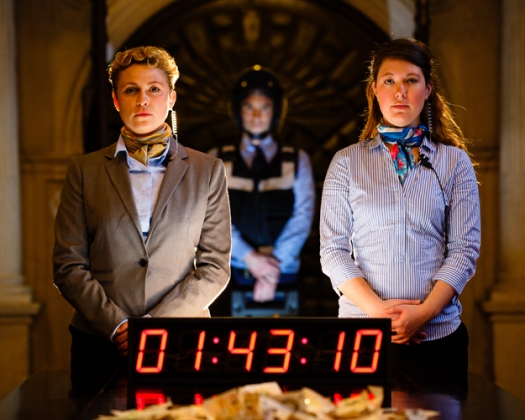Community, Leadership, Experimentation, Diversity, & Education
Pittsburgh Arts, Regional Theatre, New Work, Producing, Copyright, Labor Unions,
New Products, Coping Skills, J-O-Bs...
Theatre industry news, University & School of Drama Announcements, plus occasional course support for
Carnegie Mellon School of Drama Faculty, Staff, Students, and Alumni.
CMU School of Drama
Friday, March 29, 2019
Escaping the Imaginary of Engaged Arts
HowlRound Theatre Commons: “Who would miss you, and why, if you would cease to exist tomorrow?” In years of doing field research with cultural managers, producers, and artists, this is one of my favorite interview questions—it lets me peek into how an organization sees and sets its relations with the social reality that surrounds it. Reactions differ, but the general rule of thumb is that the organizations and individuals who have close relationships with their audiences and who work hard to produce sensitive and relevant work have their answers ready. Others are at pains.
Subscribe to:
Post Comments (Atom)

2 comments:
First, I am always frustrated by articles that clearly discuss important points, but are hard to understand because of the complicated syntax and words. I think it is really elitist of the academic community to use confusing and hard to understand language that makes “higher level” learning or concepts inaccessible to people who do not have access to an education system that teaches that kind of language – but that’s is a whole bundle of worms for another conversation. What I think this article is saying is that while art and theatre are great ways to bring community together and speak out about things that need change, the art and theatre are not actually making a change. I believe concept/realization is important because I think that too often the theatre community relish in how their art is making change but then not being active outside of the room. Art is an important communication tool, but cannot replace the solutions that actually make change. I also think the author important point about activating an audience. I do think it is important to point at the audience’s passivity and encourage taking action. However I do agree with the author that it is important to make those who are passing morally worse than those who do – avoiding creating that hierarchy. By this I mean that while being active and engaged in making change is important, those who choose not to are no less important. What I am trying to say is art should encourage people to active, not belittle them for being passive.
Wow, what a great culmination of points on the many problems with our very common capitalist theater. In the beginning of this article, they discuss the question they often like to ask; Who will miss them if their theater company disappeared? I just finished writing a comment on the amazing power of immersion, and that remains true. However the theater creators, designers, directors, and companies, must consider who their shows are for. What is the point of a theatrical production with an empty audience? Do we do this just for bright lights and applause, or is there some greater impact? Shows which I watch with great pizzaz, are pretty, I admit, however usually I forget about them. Some aesthetic thing in my brain may have changed, however that should come with a moral, key part of me. Theater is actually important because of its audiences, and often what is seen is that when the curators are so far from their actual theater, they miss the target. Theater is an engagement.
Post a Comment